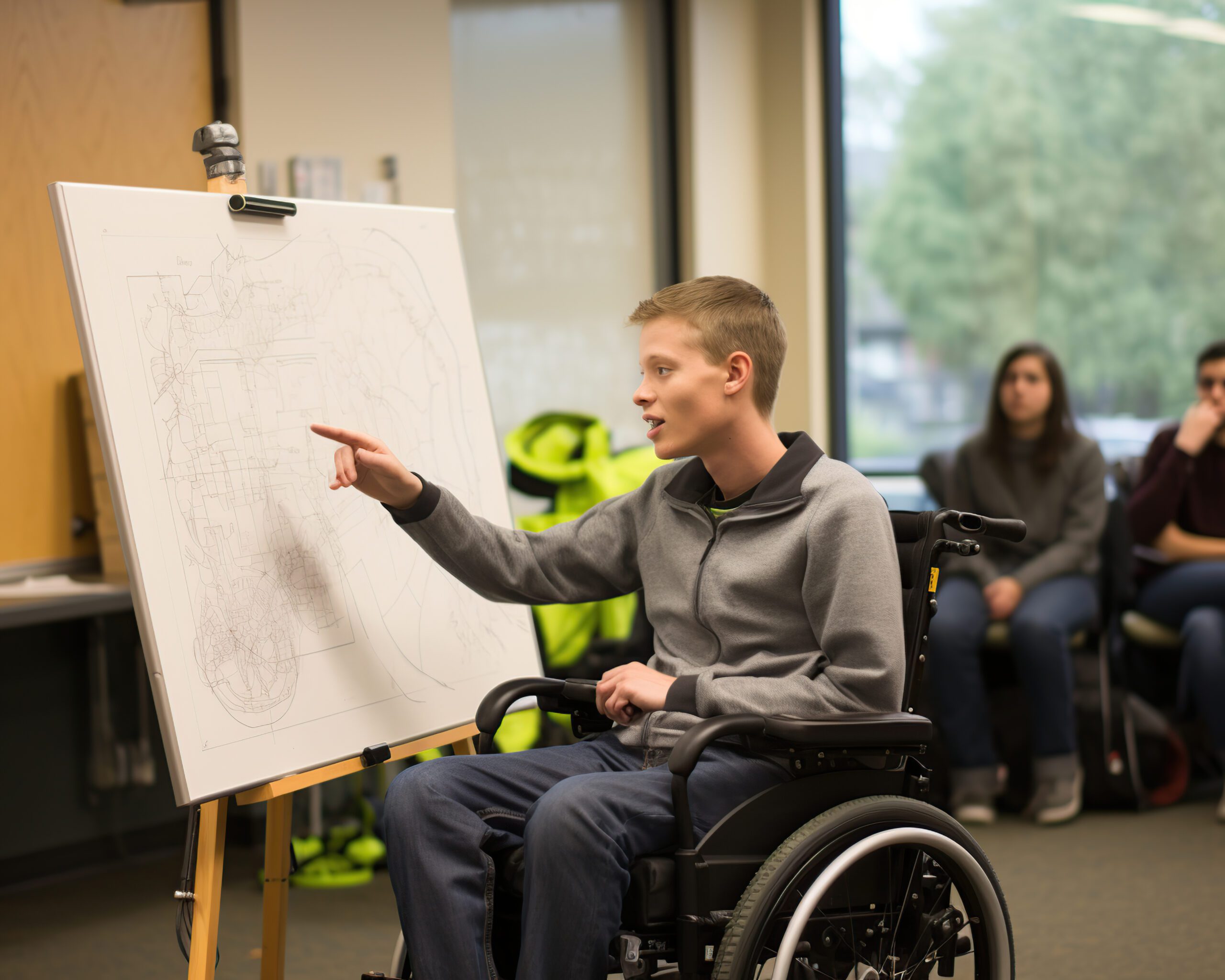Nurses are professional people who devote their lives to helping patients heal faster. They work in various types of healthcare systems. Nurses work for a diverse range of customers who have invaluable medical and emotional experiences. The elderly group/senior citizens/old patients are one of the patient segments of nurses. Having a career as an aged care nurse is incredibly rewarding.
This blog will look into a pathway to becoming an aged care nurse in Australia, especially for international students.
[ez-toc]
What is an aged care nurse?
An aged care nurse’s primary responsibility is to provide care to old persons who cannot care for themselves. Nursing homes, hospitals, residential facilities, and home care services are where most aged care nurses work.
A certified or registered aged care nurse is trained to provide primary health care to seniors, including medical, physical, and psychological assistance.
Australian Government-funded aged care programs include:
-
In-home care
Here, a nurse comes to help the elderly with their day-to-day task. In-home nursing care is loved by elderly people as it allows them to spend time with family and stay with them.
-
Residential care in aged care (nursing) homes
Here, seniors who can no longer live independently at home are provided with It accommodation and personal care 24 hours
-
Short-term care, such as respite care
It is short time relief for a primary caregiver.
Why become a registered aged care nurse in Australia?
An aged care nurse should have at least 1-2 years of nursing experience with exposure to an aged care environment in the nursing business. According to the most recent statistics, over 60% of current registered nurses in Australia are between the ages of 25 and 54, with another 19.6% between the ages of 55 and 64.
No matter what the age, if you have up-skill as a health professional or registered aged care, you can work without any obstacle.
However, on average, a nurse in Australia is 49 years old, indicating a scarcity of healthcare personnel, an aging population, and an increase in chronic health conditions. In Australia, this has resulted in a slew of issues for the nursing profession.
Post-COVID nurses have risen to the challenge and have continued to work, while others have moved into new sectors and others have taken time off. Those that are interested are versatile and willing to upskill in a specific area of interest and necessity.
This scenario indicates increasing demand for skilled health professionals to assist the elderly. All in all, aged care nursing offers a unique opportunity to make a difference in the lives of older people.
Hence, overseas students may undoubtedly come to Australia to study nursing and subsequently find positions in elderly care where they can make a good living.
In addition, aged care nursing is a rewarding career that offers job satisfaction, a good salary, and the opportunity to work with a variety of people.
Why has nurse care at home for aged care?
Families and the elderly choose in-home nursing care because it allows them to remain with their loved ones rather than having to transfer to an aged care facility or a hospital.
As a result, they are increasingly interested in in-home nursing and care for the elderly. It allows children to get more attention and love from family members and the nurse.
Nurses can also contribute to enhancing the quality of life for older individuals by appointing registered nurses in aged care.
In fact, studies have shown that older adults who get in-home nursing care have better physical and mental health outcomes than those who do not.
Further, it saves families in hospitals and their homes for longer. This can save families money on medical bills issued by the hospital. Moreover, nurse cares at home can allow older adults to age in place/home and spend some quality time with family.
General responsibilities of in-home nursing care
- Home care nurses offer health care and well-being to elderly people in their homes.
- They come in on a frequent basis to check on the overall health condition of the patient, including blood pressure, glucose, urine, and stool tests.
- Listen to family members’ worries and provide answers to their issues and educate them about aftercare or ongoing care.
- Keep track of the patient’s progress and generate reports for the doctor.
- Work with doctors and other healthcare professionals for better healthcare plans
Unlock Your Future in Business and Healthcare Today!
What are aged care nursing courses?
There are basic types of nursing courses recognized in Australia: bachelor’s Degree, Advanced DIPLOMA, and Certificated courses.
Bachelor’s Degree
A Bachelor’s degree in Nursing in Australia is the most searched degree among medical field enthusiasts.
To have a complete Bachelor’s Degree :
- You need to study full-time (usually) on-campus study for three years.
- You must have a professional work placement during your studies.
- You must get registered with the Australian Health Practitioners Regulation Agency (AHPRA) – when the course is completed.
Advanced DIPLOMA
A two-year advanced diploma in nursing often requires both full-time schooling and professional work experience. However, the chances of becoming a registered nurse soon after graduating with this diploma are slim.
Many become Enrolled Nurses (ENs), which allows them to work as nurses, but people view ENs as less knowledgeable than registered nurses.
ENs with industry experience can then apply to AHPRA to be officially registered. All in all, enrolled nurse jobs in aged care are getting popular.
One can opt for Graduate Certificate In Nursing (Non-Specialization), or Graduate Diploma In Nursing.
Besides them, one can go for NCLEX For RNs (National Council Licensure Exam For Registered Nurses), OSCE For RNs (Objective Structured Clinical Examination For Registered Nurses), and a master’s degree to become a registered nurse.
Can International students pursue aged care nursing courses?
Yes, Of Course! However, they must fulfil certain requirements.
Many institutions offer the appropriate qualifications for overseas students to become registered aged care nurses or personal, disability or aged care workers in Australia.
International students can pick study programs based on interest, practice, curriculums, innovative teaching, facilities, and even scholarship.
To study Nursing in Australia, international students must have the following:
- IELTS score of 7; no below 6.5 or PTE score of 65 or OET score of B
- Have at least one year of paid or unpaid experience within the last five years
- Have completed at least year 12 of education equivalent to the Australian Qualifications Framework(AQF)
What are the aged care nursing skills other than certification?
Besides medical proficiency, registered nurses must also have an array of skills, which are:
- Understanding human behaviour and understanding their holistic(physical, psychological, and social ) aspect and eventually providing them with the best support.
- A registered nurse for aged care has to handle different clients of patients, like those with degenerative diseases, disabilities, and auto-immune diseases. Thus, patience and perseverance are a must to help the client.
- They must have strong communication skills necessary in explaining diagnoses and handling patients’ (and relatives’) reactions.
What about the aged care nurse’s salary?
The Australian healthcare industry’s aged-care sector is substantial, and it comprises registered aged-care nurses. Registered aged care nurses earn between $47,500 and $85,500 per year or $39.91 per hour on average.
Nurses at the entry-level can make $75,875 per year, while those with more experience can earn $95,820 per year.
Aged care Nurses vs Support workers
Support workers, known as assistant aged care nurses, are trained to support medical personnel. You can get a Certificate III or Certificate IV in Aged Care Support to work as an assistant aged care nurse.
The income of an aged care worker ranges from $26K to $60K, and they can work full-time or part-time. Aged care registered nurse jobs are much more high-paying jobs, but it requires a nursing background and knowledge; anyone can take caregiver courses.
Certificate III in Individual Support (Ageing)- An important Course for assistant aged care nurses
This is a prominent aged care course in Australia that focuses on providing physical and emotional support to seniors in order to increase their independence and well-being. Students will learn about all aspects of a support worker’s job, including daily duties and personal care.
Why choose Bright College for CHC33015 Certificate III in Individual Support?
The Bright College offers Certificate III in Individual Support in Ageing, Disability, Home and Community. Certificate III in Individual Support(Ageing) is taught in Face-to-Face or physical classes; 3 days per week. You must complete a minimum of 120 hours of work placement to earn this certificate. Furthermore, teachers at Bright College assist students with all aspects of their employment.
Visit our website for further information.




